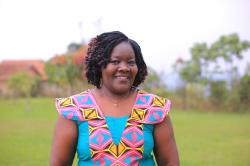

8:30 am EDT - 10:00 am EDT
Past Event
Just weeks into the COVID-19 pandemic, girls’ education and health advocates warned of a “shadow pandemic” as girls’ sexual and reproductive health and rights were jeopardized due to school closures and other lockdown measures. Two years later, evidence is emerging from across the globe that these calls were all too prescient.
Countries in sub-Saharan Africa, the region with the highest rate of teenage pregnancy even before the pandemic, have recorded dramatic increases in teen pregnancies: a 60 percent increase in South Africa, more than 50 percent in Uganda, and 40 percent in Kenya. Latin America and the Caribbean, the region with the second highest teen pregnancy rate in the world, is expected to see an increase of about half a million teen pregnancies due to reduced access to contraceptives, increased poverty, and a spike in sexual abuse. In South Asia, the United Nations estimates that COVID-19 has caused more than 400,000 additional adolescent pregnancies, a 9 percent increase in the region.
Teen pregnancies can significantly impede girls’ rights to education. Currently, an estimated 1 million pregnant girls or young mothers in Africa alone are at risk of having their educational aspirations thwarted, and even in countries with positive reentry and continuation policies, comprehensive policies and practices are still needed to respond to these young women’s specific needs.
On March 23, the Center for Universal Education shone a light on this “shadow pandemic” during a virtual event and featured Echidna Global Scholar alumni from around the world who are working to ensure that public policies help pregnant girls and young mothers stay in school and develop the skills needed to thrive. This event was the first in a new series of “Echidna Global Scholar Dialogues,” which presented the latest evidence in girls’ education from Global South researchers, provided an overview of efforts by local policymakers to address critical issues to improve learning opportunities and life outcomes for girls and young women, and shared implementation challenges from practitioners on the ground. Event participants had the opportunity to share their own experiences and challenges and network with others working on similar girls’ education issues.





Moderator

Panelist





Thinley Choden
May 3, 2024

Ghulam Omar Qargha, Rachel Dyl, Sreehari Ravindranath, Nariman Moustafa, Erika Faz de la Paz
May 3, 2024

Kathy Hirsh-Pasek, Rebecca Winthrop, Sweta Shah
May 2, 2024